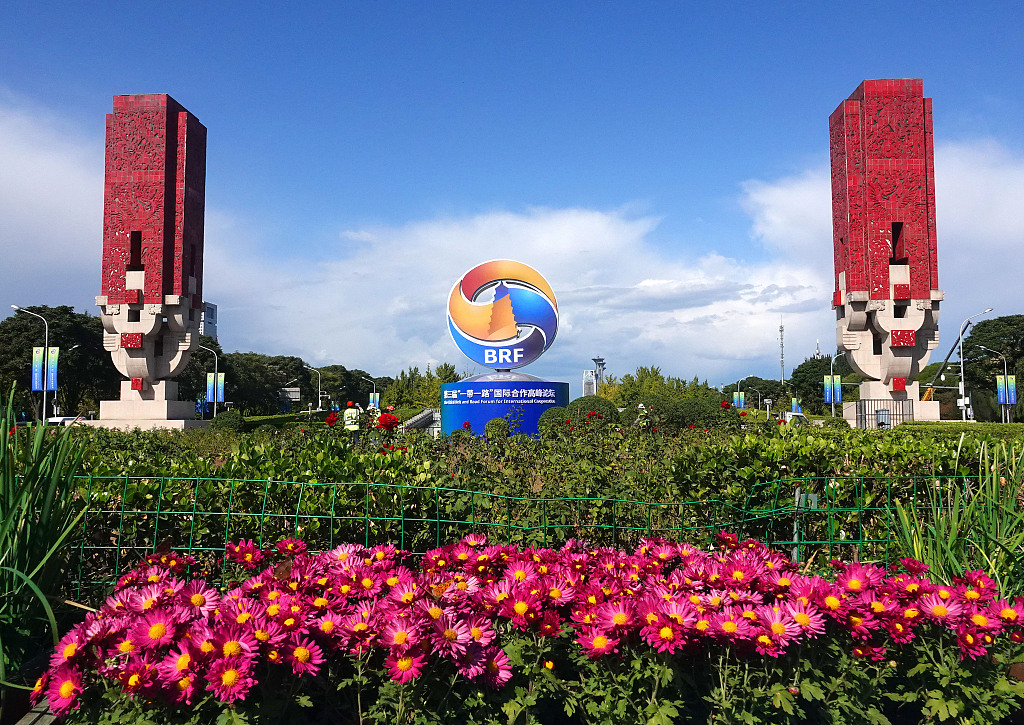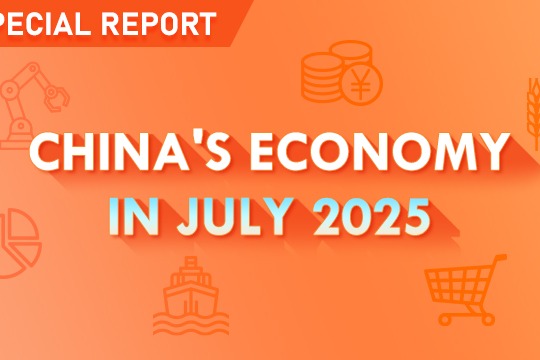Emerging market economies raise voice for global financial governance


International financial cooperation among countries and regions involved in the Belt and Road Initiative is boosting the collective voices of emerging market economies in global financial governance, thereby contributing to greater worldwide financial stability, experts said.
The observation was made as official data revealed a steady expansion in investment and financing channels among Belt and Road economies over the past decade, facilitated by the operation of regional multinational development banks.
According to a white paper recently released by the State Council Information Office, China and other economies established the Asian Infrastructure Investment Bank, which has 106 members and has approved 227 projects to date with a total investment of $43.6 billion.
The projects span sectors such as transport, energy, public health and other fields, supporting infrastructure connectivity and sustainable economic and social development in economies involved in the BRI, the white paper said.
Also, three BRI economies, namely the United Arab Emirates, Bangladesh and Egypt, have joined the New Development Bank, founded by BRICS countries, while Uruguay has become a prospective member, according to the NDB.
Liang Haiming, dean of the Hainan University Belt and Road Research Institute, said the establishment of the AIIB, NDB and other international financial institutions, has strengthened financial connectivity and collaboration between China and other BRI economies, thus contributing to global financial stability.
Liang said such cooperation efforts are helping amplify the influence of emerging market economies in global financial governance so that their rising role in global economic and financial activity is better represented.
He underscored the need to revamp the global financial governance system, whose deficiencies are increasingly evident in the repeated financial turbulence and crises, with traditional international financial institutions — such as the World Bank and the International Monetary Fund — having yet to fully strengthen the representation of emerging markets and developing countries.
Pan Gongsheng, governor of the People's Bank of China, the country's central bank, said during the 48th Meeting of the International Monetary and Financial Committee last week that China always believes that the quota reform of the IMF is supposed to reflect members' relative positions in the global economy and strengthen the voices and representation of emerging markets and developing countries.
Looking ahead, China will encourage the World Bank, the Asian Development Bank, the AIIB and the NDB to channel more resources into BRI economies, the Ministry of Finance said in a reply to China Daily in July.
China will also promote the effective operation of the Multilateral Cooperation Center for Development Finance (MCDF) to better support the sustainable development of BRI economies, the ministry said.
Liu Ying, a researcher at the Chongyang Institute for Financial Studies, Renmin University of China, said the MCDF has great potential to facilitate the financing of Belt and Road economies. The MCDF serves as a multilateral mechanism to promote high-quality infrastructure and connectivity investment in developing economies by promoting information sharing, capacity building and the preparation of connectivity infrastructure projects.
More broadly, Liu said further promoting financial cooperation among BRI economies may help mitigate the "Triffin Dilemma" brought by the dominant role of the US dollar in the global monetary system.
The Triffin Dilemma refers to a paradox wherein the dollar cannot survive as the world's sole reserve currency without requiring Washington to run ever-increasing deficits, which could ultimately impair the greenback's value and threaten its global status.
zhoulanxv@chinadaily.com.cn




































